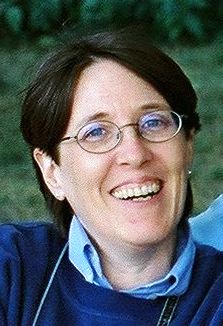
I read recently about a Romanian woman reporter who is about to marry a colleague. Hailing from a Turkish family, the 26-year-old grew up a Muslim. But her religious convictions seem to have changed with her engagement, as she has converted to Christian Orthodoxy.
For many who have no qualms about changing religion this may seem somewhat banal. I, for one, cannot understand how a person can change such an important element in life just because (s)he is marrying a person of another religion. The only thing that remains unchanged is that the woman reporter in question will continue to worship the same God. Essentially everything else changes.
According to Bahá’í belief, revelation is progressive, so in fact our former Muslim has taken a major step back in terms of divine revelation. In the Bahá’í writings, the Manifestations who periodically bring God’s Message to guide humanity, including Abraham, Moses, Buddha, Zoroaster, Christ, Muhammad, the Báb, and Bahá’u’lláh, in that order, are much like teachers in a school, of which God is the Headmaster. ‘Abdu’l-Bahá, son of the Founder of the Bahá’í Faith, Bahá’u’lláh, and head of the Faith after the passing of his father, explains that “all humankind are as children in a school, and the Dawning-Points of Light, the Sources of divine revelation, are the teachers, wondrous and without peer. In the school of realities they educate these sons and daughters, according to teachings from God, and foster them in the bosom of grace, so that they may develop along every line, show forth the excellent gifts and blessings of the Lord, and combine human perfections; that they may advance in all aspects of human endeavour, whether outward or inward, hidden or visible, material or spiritual, until they make of this mortal world a widespread mirror, to reflect that other world which dieth not.” The lesson plan of each Manifestation is suited to the particular time. Similar to a child moving on to the next class when he has learned enough to help him understand the next course of study, so too are Bahá’ís taught that it is essential for man to move on to a subsequent level of study and understanding when a new Manifestation is sent by God, in this day, Bahá’u’lláh.
So, for this woman to convert to one of the denominations of Christianity after having been raised with the Teachings of Muhammad, is much like someone in 12th grade going back to 11th grade, just because her boyfriend is in the class below. She has benefited all her life from a certain amount of enlightenment in the last year of High School, which should normally lead her to move on to university (in this case the Bahá’í Faith), but she chooses to go back, and she may even choose to remain in 11th grade for many years to come.
What is most interesting in this whole story is that the boyfriend (the male reporter to whom our female reporter is engaged) once considered himself a Bahá’í. In the early years of the Bahá’í Faith in Romania, following the popular uprising in 1989, he, his sister and mother all became members of the Bahá’í Community, participating for some years in all of the activities of this Faith. It is true that they have become inactive in the past few years, for reasons unbeknownst to me. In terms described above, all three had made it to university and could have benefitted from the vast wealth of this course of study. Now it seems that the young man took several steps back, and has somehow influenced his wife-to-be, directly or indirectly, to step back as well. What a shame!
I can but hope for them a “house of stone,” as Romanians are wont to wish their newly-weds, although my sincerest wish is for them and their offspring to find the “path of faith,” this time securely, so that their souls may benefit from enlightenment and true understanding.

